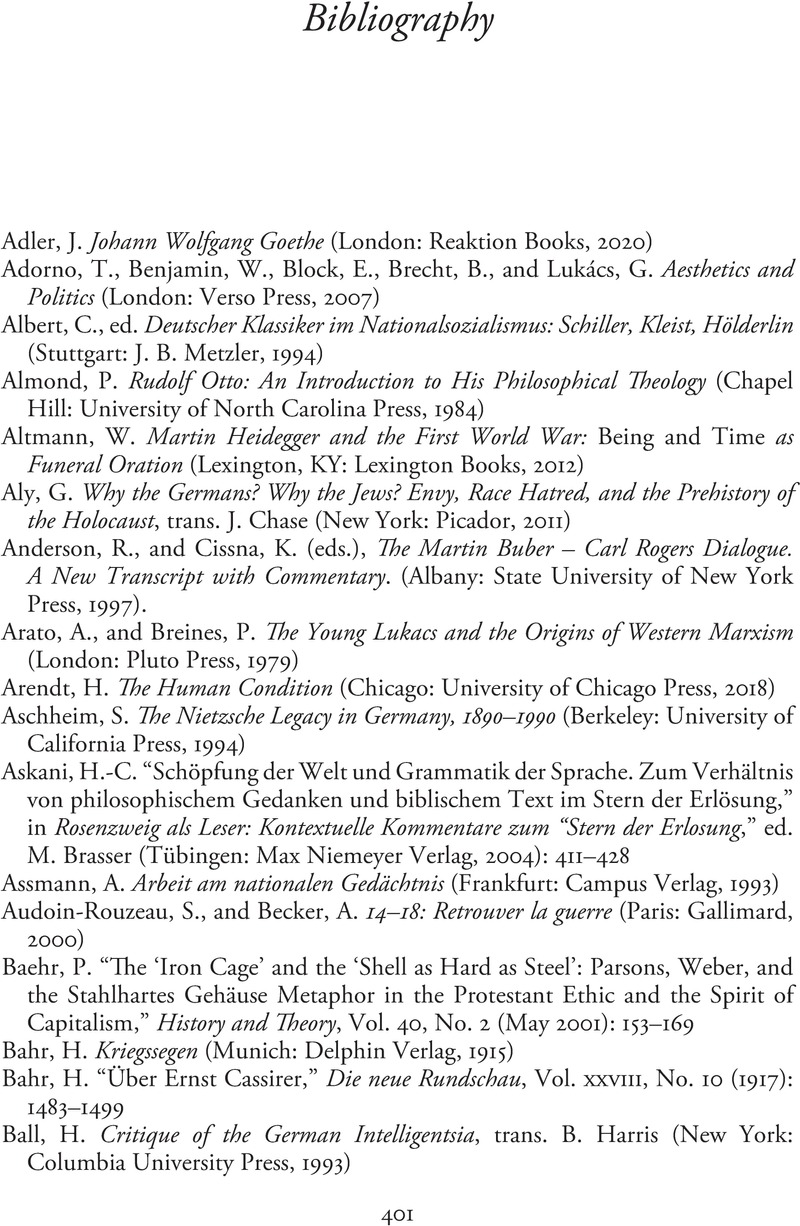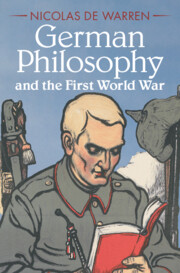Book contents
- German Philosophy and the First World War
- German Philosophy and the First World War
- Copyright page
- Dedication
- Contents
- Acknowledgments
- Introduction
- Chapter 1 The Genius of War, the Genius of Peace
- Chapter 2 Deutschtum und Judentum
- Chapter 3 I and Thou
- Chapter 4 More than Life
- Chapter 5 The Apocalypse of Hope
- Chapter 6 The Road to Damascus in the Age of Capitalism
- Chapter 7 From Death into Life
- Chapter 8 “A Journey around the World”
- Chapter 9 Martin Heidegger and the Titanic Struggle over Being
- Chapter 10 The Tragedy of the Person
- Bibliography
- Index
- References
Bibliography
Published online by Cambridge University Press: 30 March 2023
- German Philosophy and the First World War
- German Philosophy and the First World War
- Copyright page
- Dedication
- Contents
- Acknowledgments
- Introduction
- Chapter 1 The Genius of War, the Genius of Peace
- Chapter 2 Deutschtum und Judentum
- Chapter 3 I and Thou
- Chapter 4 More than Life
- Chapter 5 The Apocalypse of Hope
- Chapter 6 The Road to Damascus in the Age of Capitalism
- Chapter 7 From Death into Life
- Chapter 8 “A Journey around the World”
- Chapter 9 Martin Heidegger and the Titanic Struggle over Being
- Chapter 10 The Tragedy of the Person
- Bibliography
- Index
- References
Summary

- Type
- Chapter
- Information
- German Philosophy and the First World War , pp. 401 - 419Publisher: Cambridge University PressPrint publication year: 2023

